Interview: Robert Bannon of REWIND at The Green Room 42
"I'm so grateful to have had my family and friends support me - the least I can do is give the support back to the community and to people who need it."
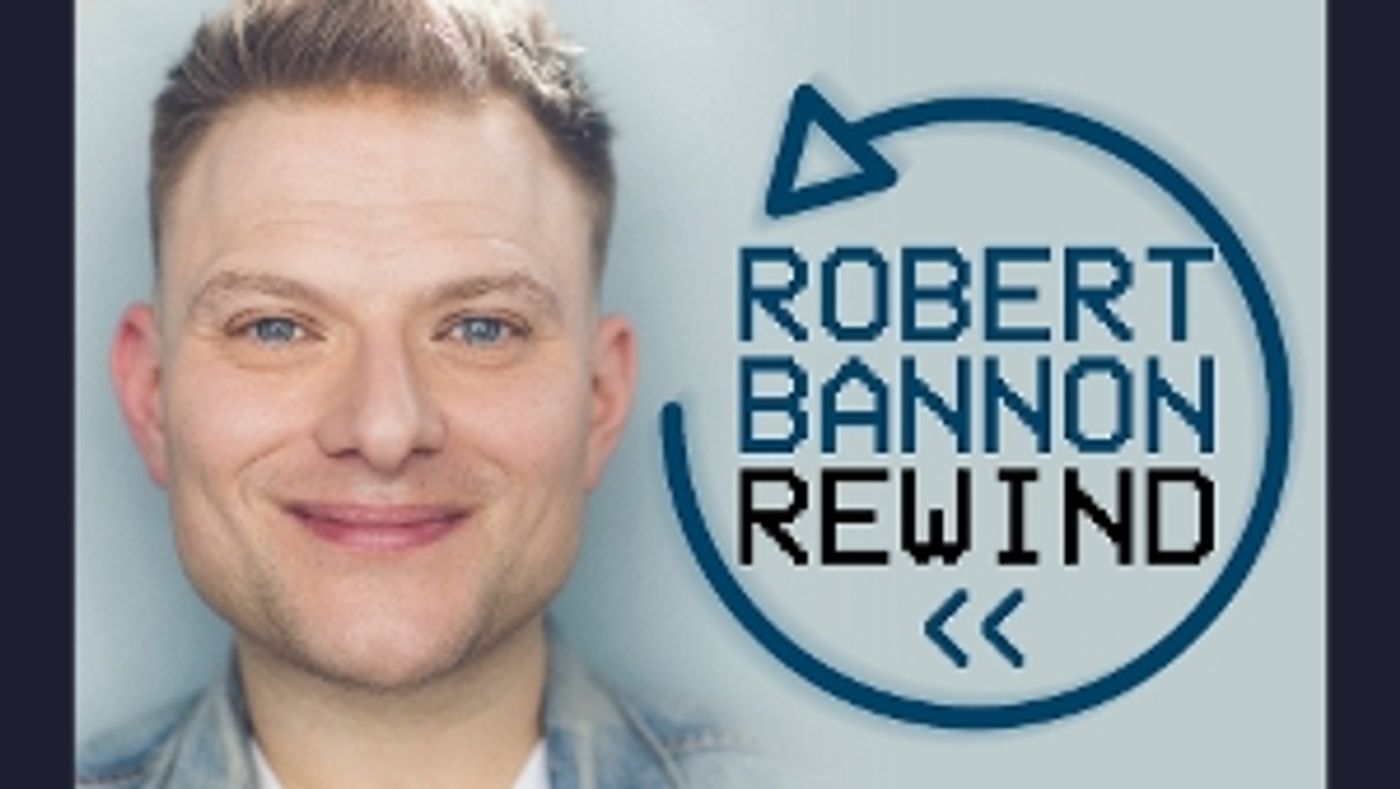 What a world, what a life. Those are the lyrics to a song by Harold Arlen and Ted Koehler, the kind of standard from The Great American Songbook that Robert Bannon would probably sing in one of his club acts. This actor, crooner, Saturday Night Live alum and internet chat show host lives the life of a man with many interests and facets, embracing them all while he eats life. It's a wonderful, whimsical existence from which many could learn a thing or two - but the people who learn the most are Robert Bannon's students, for he continues his work as an educator, all while making his art. What a world, what a life, indeed.
What a world, what a life. Those are the lyrics to a song by Harold Arlen and Ted Koehler, the kind of standard from The Great American Songbook that Robert Bannon would probably sing in one of his club acts. This actor, crooner, Saturday Night Live alum and internet chat show host lives the life of a man with many interests and facets, embracing them all while he eats life. It's a wonderful, whimsical existence from which many could learn a thing or two - but the people who learn the most are Robert Bannon's students, for he continues his work as an educator, all while making his art. What a world, what a life, indeed.
On October 22nd Robert Bannon returns to the nightclub stage with a new show, when REWIND will play The Green Room 42 - a show that will be recorded for his first live album. Before that day happens, Robert took a call from Broadway World Cabaret to chat about New Jersey, mall basements, and the importance of living in the light.
This interview has been edited for space and content.
Robert Bannon, welcome to Broadway World!
Thank you, Stephen. I've been reading your interviews and reviews and columns for years, so it's nice to be here.
I promise you, there is a better use of your time than reading me.
(Laughing) NO!
Robert, you have so many aspects to the work that you do. Let's start with this: tell me about your relationship with the craft of singing.
Great question. I, at 10 years old, told my parents I didn't want to play sports anymore, I wanted to go learn musical theater, and I was grateful that my good little Jersey parents brought me to my first Broadway show. They brought me to a performing arts center that was in the basement of the mall, like a good Jersey parent would. I started singing at 10 years old and, very quickly, the teachers there said that I had something to offer. I was accepted into the Juilliard Prep School at Lincoln Center for Eighth Grade, and I've been singing on and off ever since. I love music, I think it's an international language that we all speak. And it's what makes me happy.
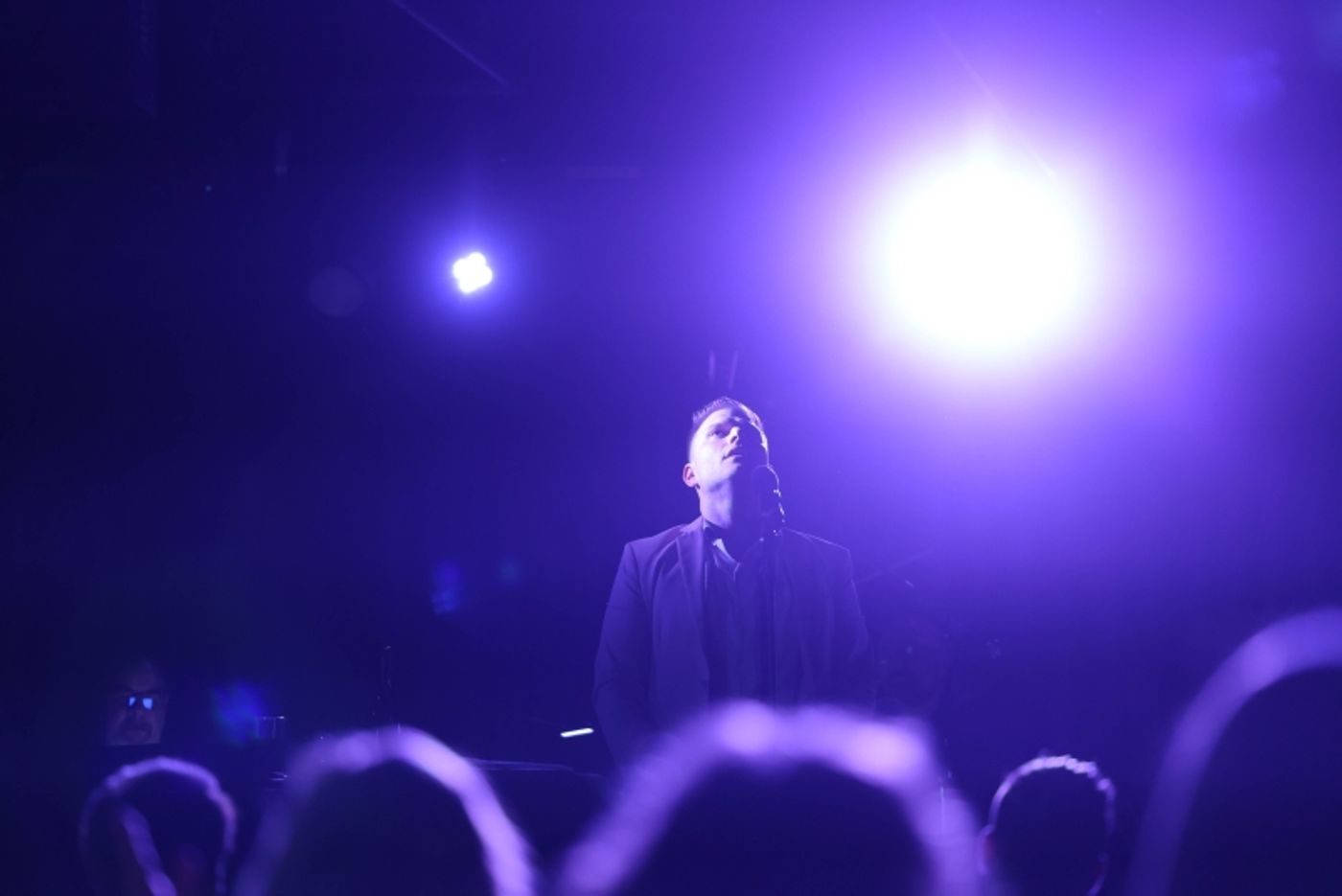
Your answer sparked several questions in my head. First of all, what was the sport that you played before you went into theater?
(Laughing) My dad was the basketball coach for our Rec Basketball Team in Ridgefield Park, New Jersey.
And, as the basketball coach, to have his son throw away the legacy sport and go into musical theater, he was good with that?
It took a moment, it definitely took a moment. I think that they were really ahead of their time, in allowing me to be who I was, and they were incredibly supportive and they still are! They have seen me sing numerous times, and they're the most supportive parents. My whole family is very shy, they're very introverted, and I feel like I was shot out of a cannon - so I don't know where I came from, but they've been so supportive of the journey ever since.
What was that first Broadway show they took you to?
I was in Fifth Grade, so they took me to see Beauty and the Beast, and then we saw Damn Yankees the week after. And you want to know something really funny - my parents saved their money and we would go see a Broadway show a month. We lived a mile and a half from the George Washington Bridge, and instead of taking us to movies or taking us to fancy dinners, my parents knew I had a love for theater, and we went every month and saw a Broadway Show, bought the poster, kept the Playbills. I was that theater kid who, in Sixth Grade, said my favorite movie was Funny Girl, and I wanted to be in The King and I when I grew up. So it was just always in me.
Did you want to be Mrs. Anna?
(Laughing heartily) I would be a good Mrs. Anna! I could wear that dress and I could do the dance!
Aren't all good child musical theater programs in the basement of a mall?
.jpg?format=auto&width=1400) You know, her name was Carol Maso, and what it taught me was that I wasn't alone. I felt like such an outsider in my school, there was not a very big arts program in my school - nobody else I knew really did theater or television or acting or dancing. It was all very sports-oriented, and being in there, maybe it wasn't the fanciest, most prestigious school but it definitely was a school that taught me that there was a place that I belong. And I think that that's so important in the development of kids, especially as a school teacher: we need to allow our kids to be who they are. That's really where I learned that it was okay to be the theater kid.
You know, her name was Carol Maso, and what it taught me was that I wasn't alone. I felt like such an outsider in my school, there was not a very big arts program in my school - nobody else I knew really did theater or television or acting or dancing. It was all very sports-oriented, and being in there, maybe it wasn't the fanciest, most prestigious school but it definitely was a school that taught me that there was a place that I belong. And I think that that's so important in the development of kids, especially as a school teacher: we need to allow our kids to be who they are. That's really where I learned that it was okay to be the theater kid.
The music that you sing leans more into the jazz vocalist genre. How did you develop such a very specific sound? How does one go from Broadway belting into jazz?
You know, that's such a good question. I was also the grandson of little Italian immigrant grandparents, and growing up in their house Dean Martin, Frank Sinatra, Tony Bennett, Sammy Davis, Jr., Liza Minnelli were sacred. When I went to high school, we didn't have a very big musical theater program, but we had a chorus class and that chorus class did a lot of pop songs of the Eighties and Nineties. When it was time for me to do solos, we really steered clear of Broadway, and I started to sing Barry Manilow and Frank Sinatra and Elvis Presley songs because I knew them, growing up, and that was kind of where the program was more geared to. I fell in love with the pop world of that time - I love the jazzy pop world with the arrangements and the instrumentation of those songs in the Fifties, Sixties, and Seventies.
So through it all, I've always been a Fanilow to the Nth degree - I do a whole giant Barry Manilow medley in my show. I've always been in love with the pop singers of that time - so it was always the progression of living between doing musical theater and then getting up and being a cabaret/jazz-style singer. (Laughing hard) Student of both and master of none is what it feels like in a lot of ways!
How does a musical theater nerd end up on Saturday Night Live?
To answer this long question in a very short way: I had a whole other career, you know, I am an educator. I have my master's degrees in educational leadership and school law, and I was a teacher for 15 years, and still am. I decided, at 33 years old, that I was unhappy with my life ending at three o'clock and going home grading papers: I missed the artistic side of myself that I (had) let fall aside, to make a living and make a day job. So I went to acting school - I went to William Esper Conservatory in the city, I finished my two-year acting conservatory-ship and ended up trying to go on auditions, and one day I got an email from a casting director who saw my profile on Backstage, believe it or not.
He said to me, "I have this role for Saturday Night Live, and I think you would be perfect." I said this must be spam, and I didn't respond to it for 12 hours because I thought it was not real. It was real, it was the casting director for Saturday Night Live, and they cast me because it was to play a character that had really short hair - it was during the time when 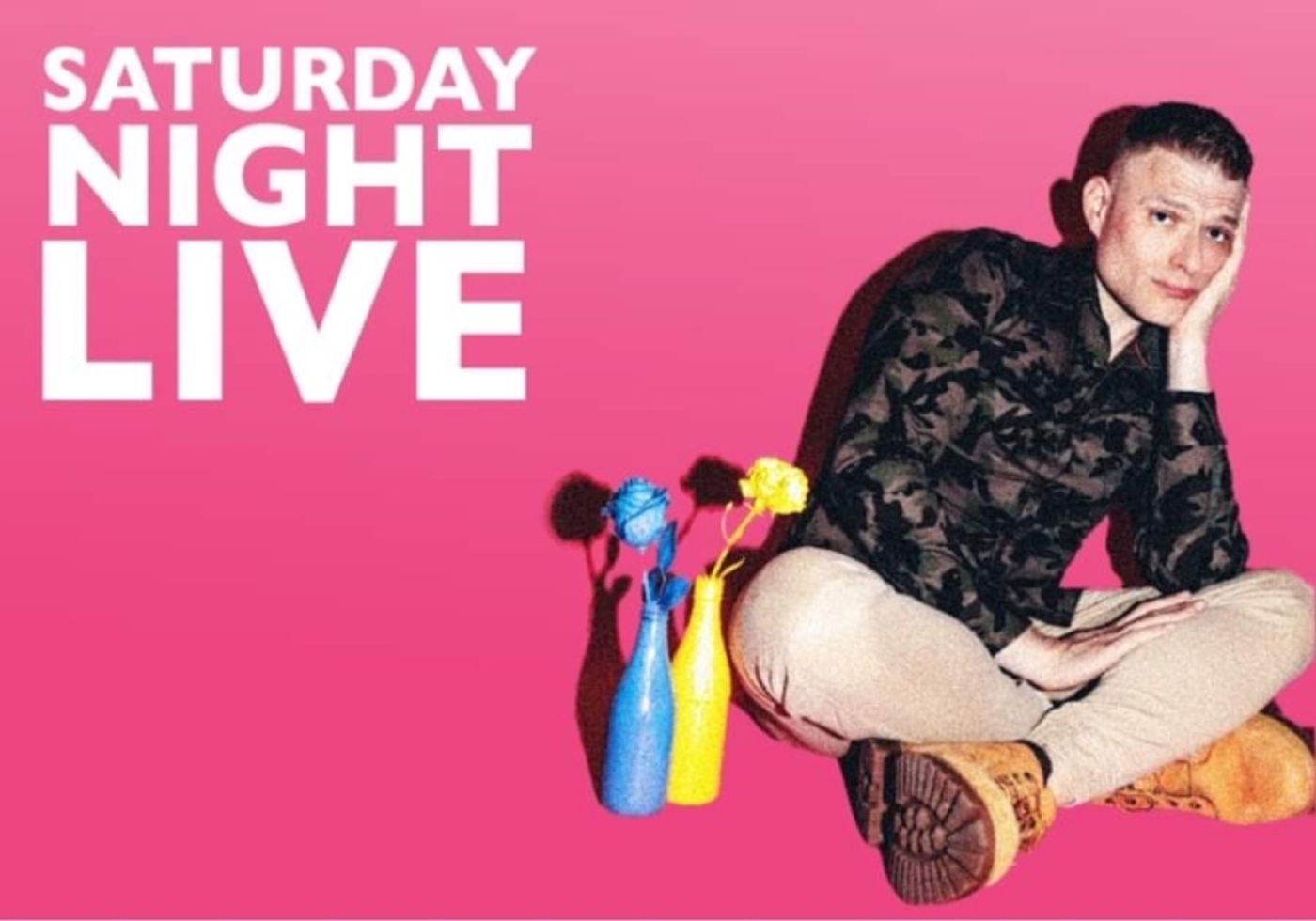 they weren't letting people in from the Middle East and they needed someone to look extra scary. They wanted this, for lack of a better word, "skinhead" look. I told them, if I would be on Saturday Night Live and they would book me for the show, I would go to the Super Cuts around the corner and shave my head. They said, "You would really shave your head for this?" and I said, "To be on Saturday Night Live, yes, I will shave my head." And I went around the corner and shaved my head and they always remembered me, and I was lucky enough that, before the pandemic and even through the pandemic, sometimes, I've gotten to make over 20-something appearances on Saturday Night Live, all different parts from playing the violin to being a fake bass player to being all sorts of different little mini roles, that I got to see and witness the brilliance that goes on in that studio every single week.
they weren't letting people in from the Middle East and they needed someone to look extra scary. They wanted this, for lack of a better word, "skinhead" look. I told them, if I would be on Saturday Night Live and they would book me for the show, I would go to the Super Cuts around the corner and shave my head. They said, "You would really shave your head for this?" and I said, "To be on Saturday Night Live, yes, I will shave my head." And I went around the corner and shaved my head and they always remembered me, and I was lucky enough that, before the pandemic and even through the pandemic, sometimes, I've gotten to make over 20-something appearances on Saturday Night Live, all different parts from playing the violin to being a fake bass player to being all sorts of different little mini roles, that I got to see and witness the brilliance that goes on in that studio every single week.
As an actor, what was the most salient lesson that you took away from working on Saturday Night Live?
Great question. You know, there's a lot of pressure, as the show's about to start, if you're in the beginning, the "Live from New York" part of the show when they count down from ten until you go live: at four, they say, "Don't mess this up. There's 12 million people watching." For me, I just have a little mini something to do, but for the performers, they are live as can be, with very little rehearsal, in front of millions of people, making a water cooler moment. I think what I learned is that their preparation, and their ability, and confidence that they know what they're doing is what makes the show successful. I think that, as cheesy as it is to practice and be ready... they're ready. When that camera starts and that light goes on, they're ready. So be prepared.
I want to pivot and talk about The Green Room 42. You've got a show coming up October 22nd. On the website for The Green Room 42, it appears to have two different titles - the first one is Unfinished Business In Concert, which is very clear because that's the name of your album.
Mm-hmm
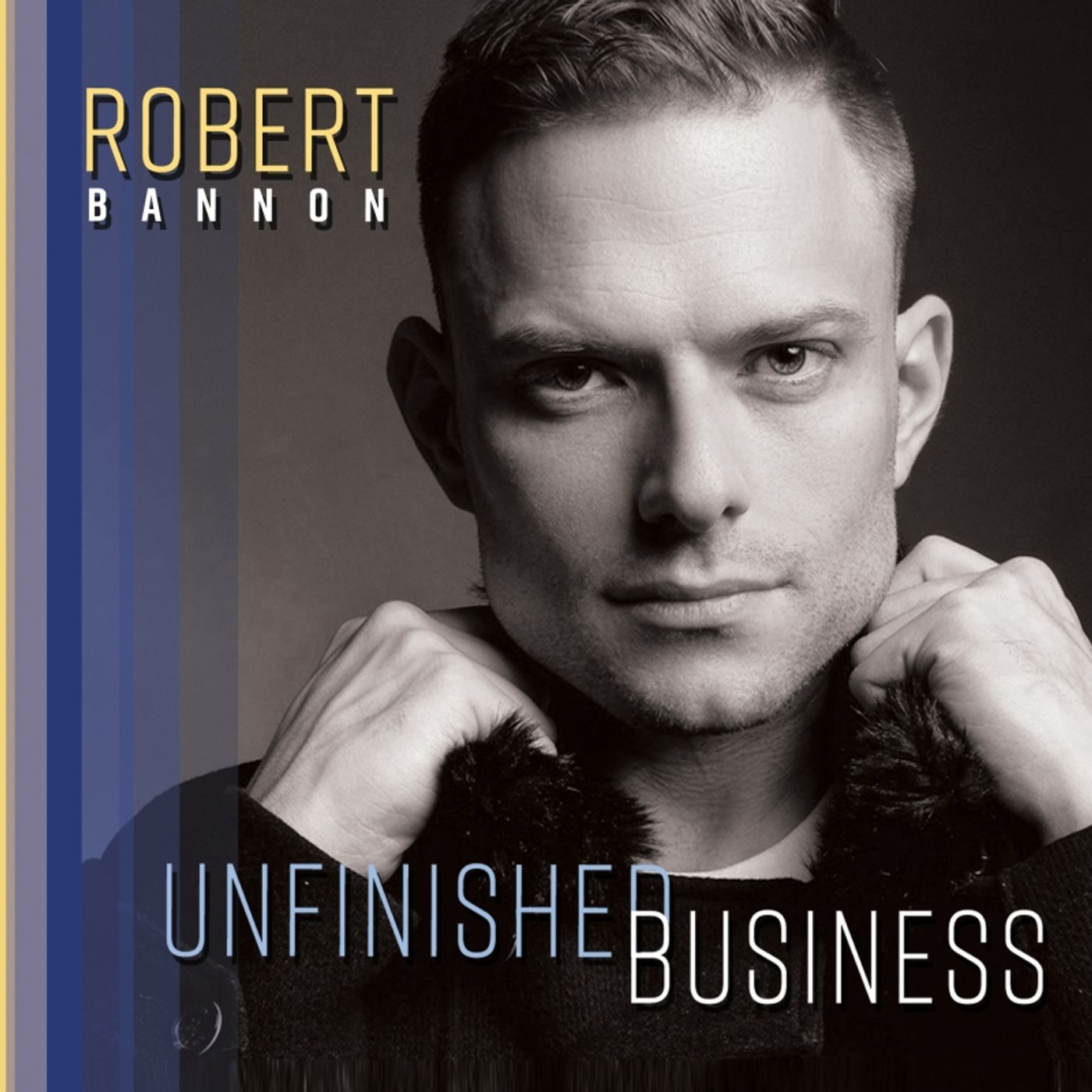 So tell me about the Rewind portion of this title.
So tell me about the Rewind portion of this title.
Unfinished Business is the name of my album. It is kind of the story that I just told you about - giving up music at 22 years old, becoming a teacher, and then going back to finish that business. But we were going through and building a show, and I had done a show at 54 Below that was Unfinished Business - I didn't want to do the same show. I had really evolved and grown from the album. That album came out of the pandemic - it was recorded while we were all home, it was recorded virtually, and I wanted to do something fun! I felt like we had lived in such a tough, difficult time - it was time to expand and do something fun and upbeat! I didn't want to just be singing Anthony Newley torch songs the whole show. I wanted to do something that was entertaining and fun.
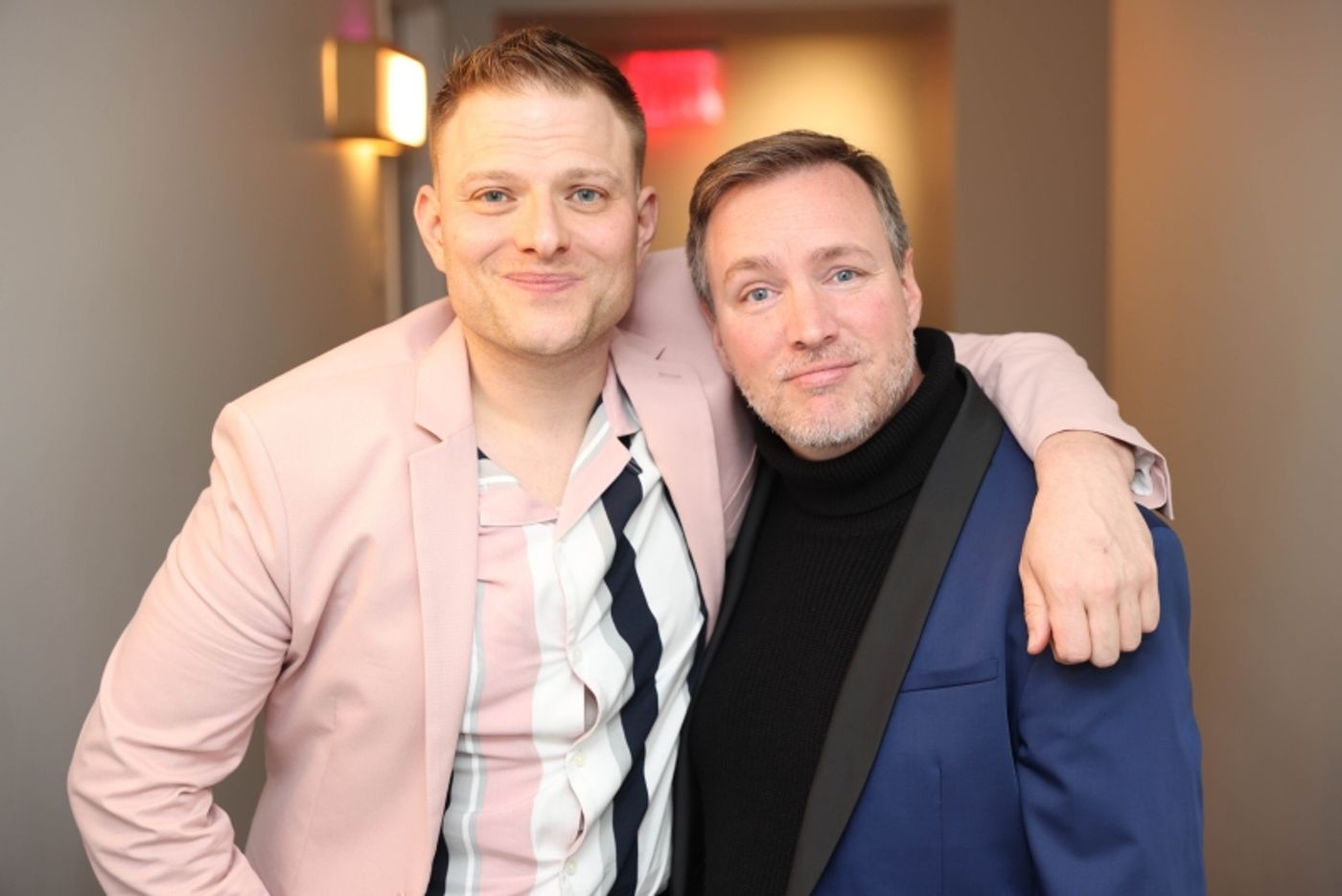 I started having a conversation with Robbie Rozelle, who wanted to tackle this with me, and I said to him, "What can we do that's fun?" And he said, "Well, when did you grow up? Tell me about your childhood." I started to tell him my stories about being the son of an Irish guy and an Italian woman, living in Jersey, trying to sing musical theater, loving the Muppets and loving Barry Manilow, and singing Bette Midler in the shower. We built a really fun show that kind of rewinds and tells the journey that I was on, that led me to where I've been, as cliche and cabaret as that is. I hope we picked some obscure songs that you can sing along to and clap with. It has its serious moments, but it's definitely a good trip down memory lane. So, we're pressing rewind to go back in time to, to see where it all began.
I started having a conversation with Robbie Rozelle, who wanted to tackle this with me, and I said to him, "What can we do that's fun?" And he said, "Well, when did you grow up? Tell me about your childhood." I started to tell him my stories about being the son of an Irish guy and an Italian woman, living in Jersey, trying to sing musical theater, loving the Muppets and loving Barry Manilow, and singing Bette Midler in the shower. We built a really fun show that kind of rewinds and tells the journey that I was on, that led me to where I've been, as cliche and cabaret as that is. I hope we picked some obscure songs that you can sing along to and clap with. It has its serious moments, but it's definitely a good trip down memory lane. So, we're pressing rewind to go back in time to, to see where it all began.
When you are creating a nightclub act, a cabaret show that is based on your memories, on your heritage, on your formative years, how do you go about constructing a show using preexisting music without it sounding like the songs have been shoehorned into your story?
That's also a really great question. I think that what I tried to do was, I wrote down a list of songs that I wanted to do. Most of them were scrapped because I started to tell the story, and, as an acting student, it's always like: what is the story? What is the objective? When I finally got the chance to sit and be like, "What is the objective of this show? What am I trying to say? What do I want the audience to leave? How am I gonna tell it?" all of a sudden, these other story ideas and memories started to pop up. There are some songs that I never would imagine singing, ever, that I never had intended to sing, but they fit so well.
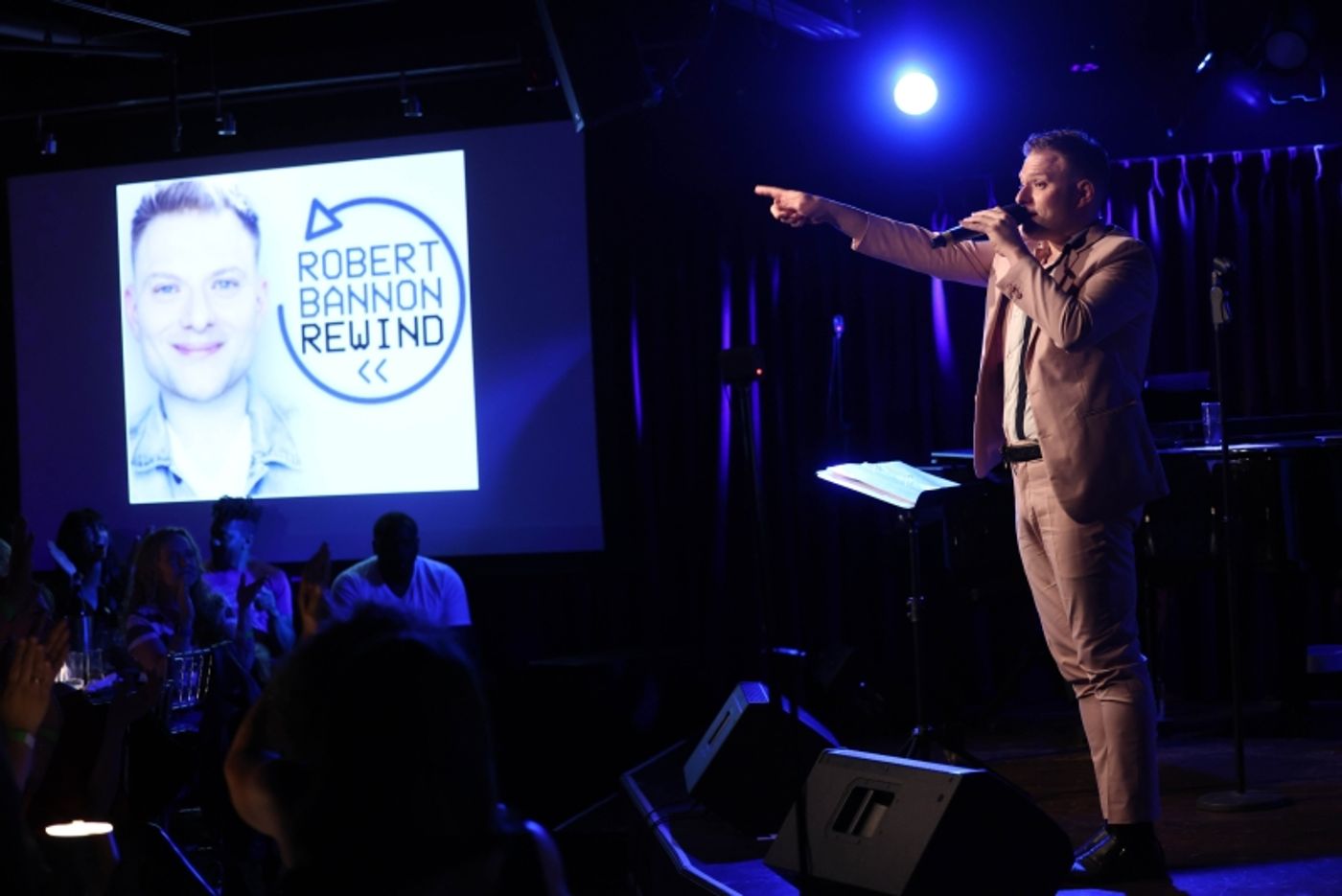
It's really been fun to expand and push myself in those ways. It really starts with the story for me, then finding the material to fit, afterwards. So the story was told first, then we inserted songs that made sense, after the moment. I hope that when people come and see it they get the journey and they have some fun along the way. But at the end of it, I hope that there's some inspiration because I feel like everybody can look back at all the things that we've done wrong, all the mistakes we've made, but it has really led us to where we are. I hope that's what the theme of the whole show really is: Everything happens for a reason.
How did it feel to have an album debut at number one?
It was number one on the Amazon AC chart - I had no idea it was - thanks to all the people who are watching the virtual talk shows that I host (or me shamelessly promoting everywhere)! I was lucky and supported to have a really great family and friend group, all the teachers that work in the district that I work in, the students, everybody was so supportive. I don't even think people had CD players to play the CDs, but the fact that Amazon was gonna deliver them, made them go on and order it. It's surreal, Stephen.
You just mentioned your talk show.
Yes.
You've already got your acting career and your singing career and your teaching career. How did you possibly conceive to add one more thing and then have it turn out to be this big hit?
I never meant to! (Laughing) I was doing the album - I did a show at 54 below and the saxophone player said, "I know somebody who develops jazz and cabaret albums" And I was gonna go record the album, and March came, the pandemic happened. And I reached out to Lee Lessack and said, "Can I still go and record the album?" and he said, "Everybody's doing a virtual show. I want to do a virtual show and spotlight the people who have released music on my label. Do you want to do it with me?" The first week we did 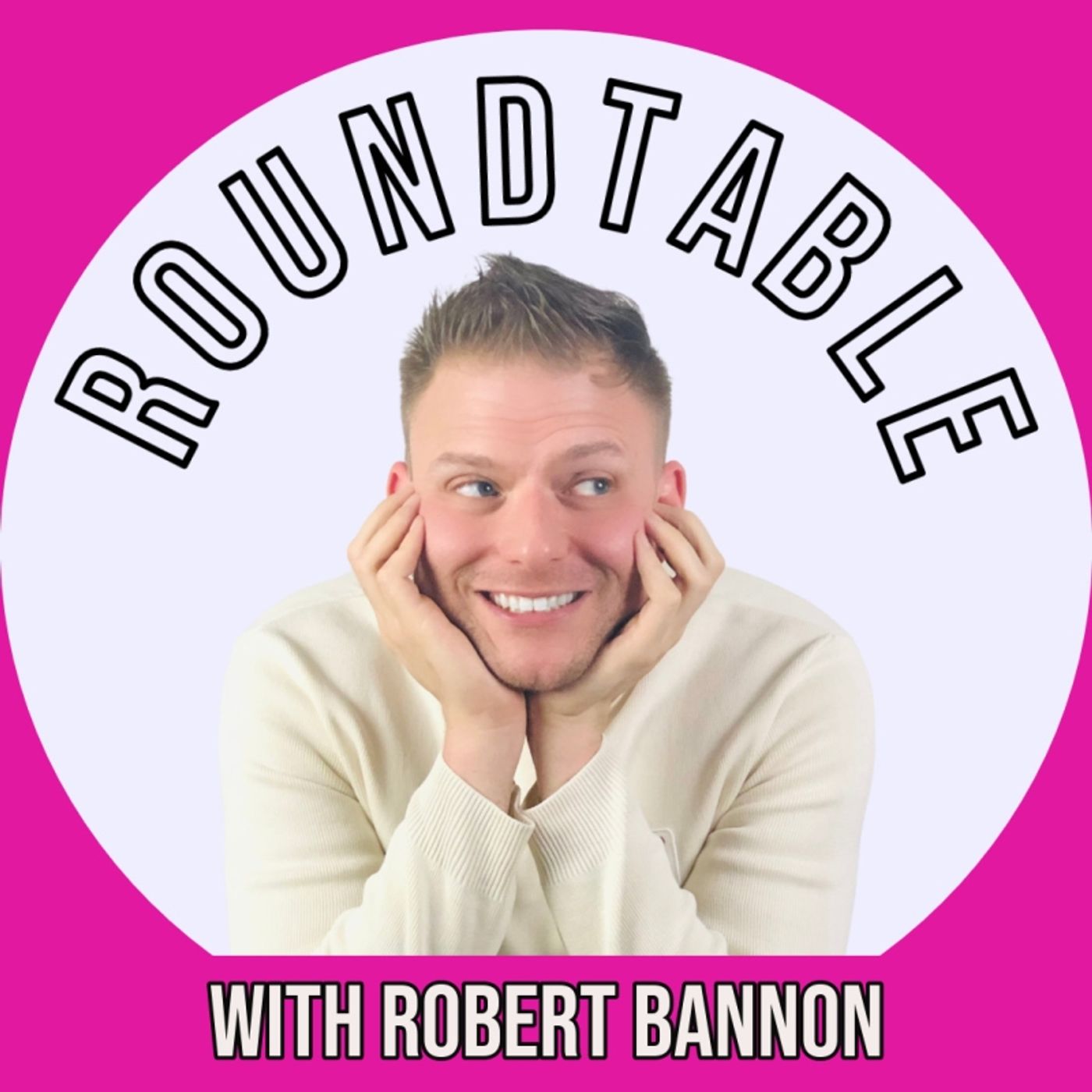 it, there was no graphics, there was no opening, there wasn't even a title - Jessica Vosk and Amanda McBroom were the first guests. And I was just in awe of getting to talk to them about their art and artistry - I'm so curious as to how people get to where they are and their journey. We did that show for a year. It turned into something called the Broadway Cast Reunion Series, which was sold to 37 performing arts centers around the country, where we reunited Broadway casts. And then Lee didn't want to do it anymore, so I didn't do it for about a month. And every Thursday night, I looked to talk to people and to continue to have a conversation with people - I decided to rebrand it and it's come out now as the Round Table, and we've done it for 39 weeks. I've been so grateful about the feedback I've gotten, the views that I've gotten and the guests who have been so kind and generous with their time. I think it makes me a better entertainer. I'm so grateful for anybody who sits down to watch it. It's on YouTube and it's on Facebook every single week.
it, there was no graphics, there was no opening, there wasn't even a title - Jessica Vosk and Amanda McBroom were the first guests. And I was just in awe of getting to talk to them about their art and artistry - I'm so curious as to how people get to where they are and their journey. We did that show for a year. It turned into something called the Broadway Cast Reunion Series, which was sold to 37 performing arts centers around the country, where we reunited Broadway casts. And then Lee didn't want to do it anymore, so I didn't do it for about a month. And every Thursday night, I looked to talk to people and to continue to have a conversation with people - I decided to rebrand it and it's come out now as the Round Table, and we've done it for 39 weeks. I've been so grateful about the feedback I've gotten, the views that I've gotten and the guests who have been so kind and generous with their time. I think it makes me a better entertainer. I'm so grateful for anybody who sits down to watch it. It's on YouTube and it's on Facebook every single week.
Your show is being recorded as a live album.
It sure is.
Put me in the picture of the decision and the artistic process of recording a live album, where anything can happen, mistakes, stuff like that, as opposed to a studio album where you're in complete control of everything.
I'm so reckless, Stephen, that I was ready to do it. The last time, I did a show without ever rehearsing or doing the show before, and Robbie Rozelle, who's directed this show, said to me, "You can't just go up there and record this." I was like, "Why? What's the worst case that happens? It's not good? Then we don't use it." So he was like, "No, you have to practice." I don't know what it is, I have this fearlessness about it, if it doesn't work out, that's okay.
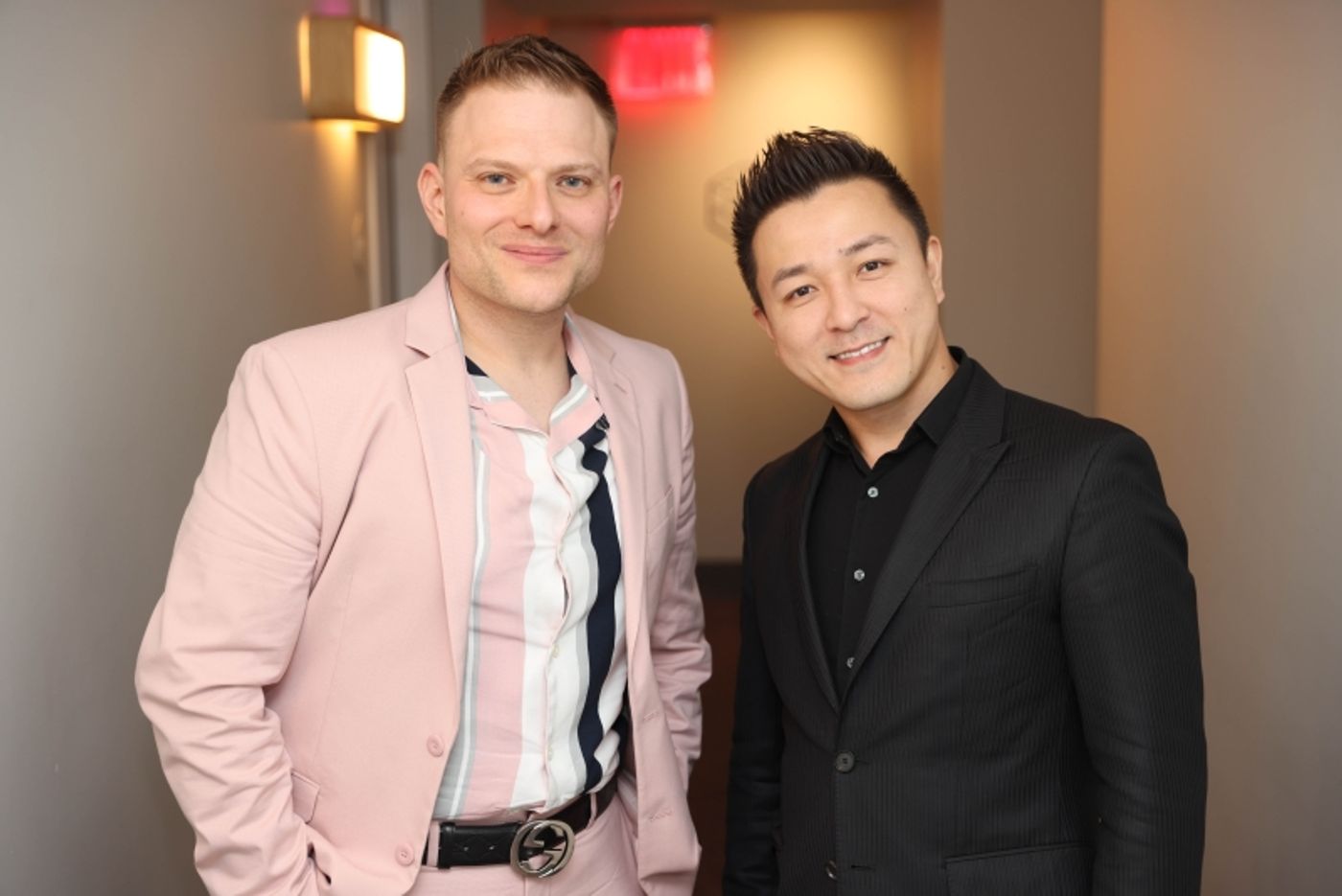 But I really feel confident in the group of musicians. Yasuhiko Fukuoka is the music director. Robbie will be at the helm of directing it and, no matter what happens, I know that we can make a fun evening and a fun moment together. I'm really trying to embrace the imperfect of who I am. When you're in music and art and theater, you're told you don't sound enough. You don't look enough. You don't act enough. I'm trying to get comfortable, through the talk show, through my years in the classroom, that just being who I am is it. This is all you're gonna get. I turn 39 on Halloween, and this is it: I'm not changing. So whatever is going to happen, they're gonna press record. That night we have a full band, we have a full show and I can't wait to put it out and let more people who aren't able to be in New York get a chance to hear it.
But I really feel confident in the group of musicians. Yasuhiko Fukuoka is the music director. Robbie will be at the helm of directing it and, no matter what happens, I know that we can make a fun evening and a fun moment together. I'm really trying to embrace the imperfect of who I am. When you're in music and art and theater, you're told you don't sound enough. You don't look enough. You don't act enough. I'm trying to get comfortable, through the talk show, through my years in the classroom, that just being who I am is it. This is all you're gonna get. I turn 39 on Halloween, and this is it: I'm not changing. So whatever is going to happen, they're gonna press record. That night we have a full band, we have a full show and I can't wait to put it out and let more people who aren't able to be in New York get a chance to hear it.
What's the strongest feeling inside of you about being a role model for queer people?
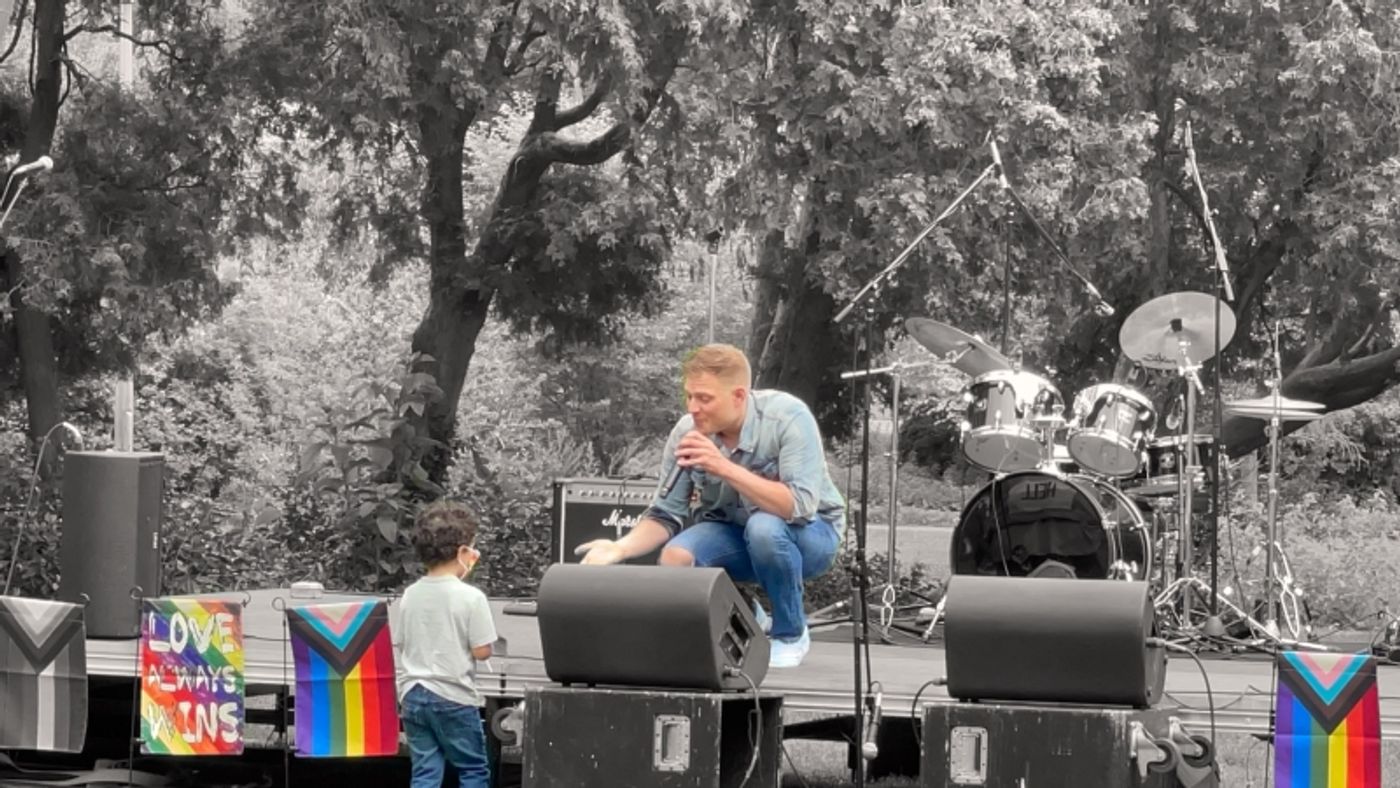
That's a good question, and a scary question. As a fifth grade school teacher in North Bergen who lives his life pretty out and publicly (all you have to do is Google me and you'll read my whole personal story), I've had a lot of students who have come to me and struggled with their sexuality, and have had problems with their family. Out of all of the music and all of the television shows and all of the guests that I've gotten to interview, the thing I'm most proud of is the kids who have come to me - and I hope to give them some hope and see some kind of reflection of who they are in me. I'm not a role model. I came out very late in life. I had a whole other life where I was married to a woman. I had a tumultuous divorce. I spent years by myself, really afraid of being who I authentically was. I don't want people to spend 30 years, 32 years of their lives afraid of who they are. If my little story and my being out there and being public can help solve somebody's pain, that's what I try to do. I'm so grateful to have had my family and friends support me - the least I can do is give the support back to the community and to people who need it.
Robert, I have one question left for you, this is our last question of the day and I'm pulling out all the stops. So I want you to do the same for me.
Okay. I'm gonna give it to you.
Robert, what is the Unfinished Business that still remains, that still requires your attention?
What is the Unfinished Business that still requires my attention?
Yes.
I was sitting on 135 street, outside my friend's apartment, about to go for a music lesson, when I wrote on Instagram that life's a journey, not a destination. I decided to say, "It's time to finish some business." For me, it was about getting up and singing. I think that the business is never finished. I hope that when people are older and someone who's retired they have so many things they want to do. I hope that the business is never finished because I think when we finish, I think we've become complacent, and we just stay where we are and there's a time and a place for everything.
I have so much I want to do. I have so much I want to learn. I have so much that I want to accomplish that I want to keep going. I want to keep growing until I can be as much of an artist as I possibly can. The vulnerable answer is I think personally, my personal life, I always have business to finish as well. I'm a son, I'm a brother, I'm a partner, I'm a friend. I focus a lot on work and one thing I would like to finish is learning that balance to try to be able to do it all. I don't want to be that 75 year old who has accomplished all of this stuff and then says, "What is my legacy? I worked really hard." So I'm trying to learn how to be a little bit more balanced, in terms of spending time with my family, spending time with my friends and trying to try to fit it all in because I'm not great at it. I'm not great at it at all.
Robert, thank you so much for chatting with us today. I'm so excited about your show and your album.
I am so honored to have talked to you today.
For information and reservations to Robert Bannon REWIND visit the Green Room 42 website HERE.
THIS is the Robert Bannon website.
For the BRAND NEW Soon To Debut Broadway Lecture Series click HERE.
Robert's ROUNDTABLE series can be found HERE.
Listen to Robert Bannon on Spotify HERE.
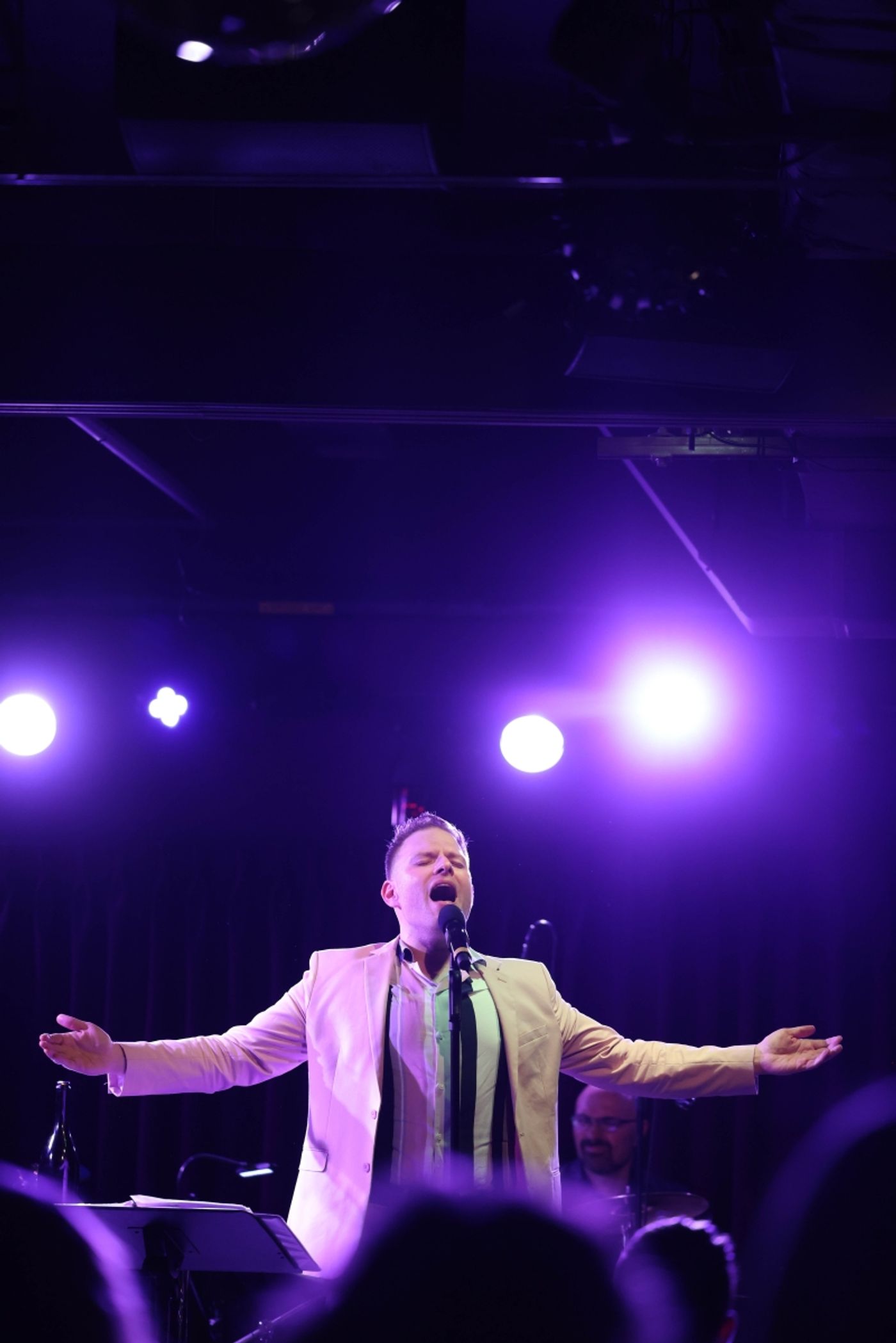
Videos

